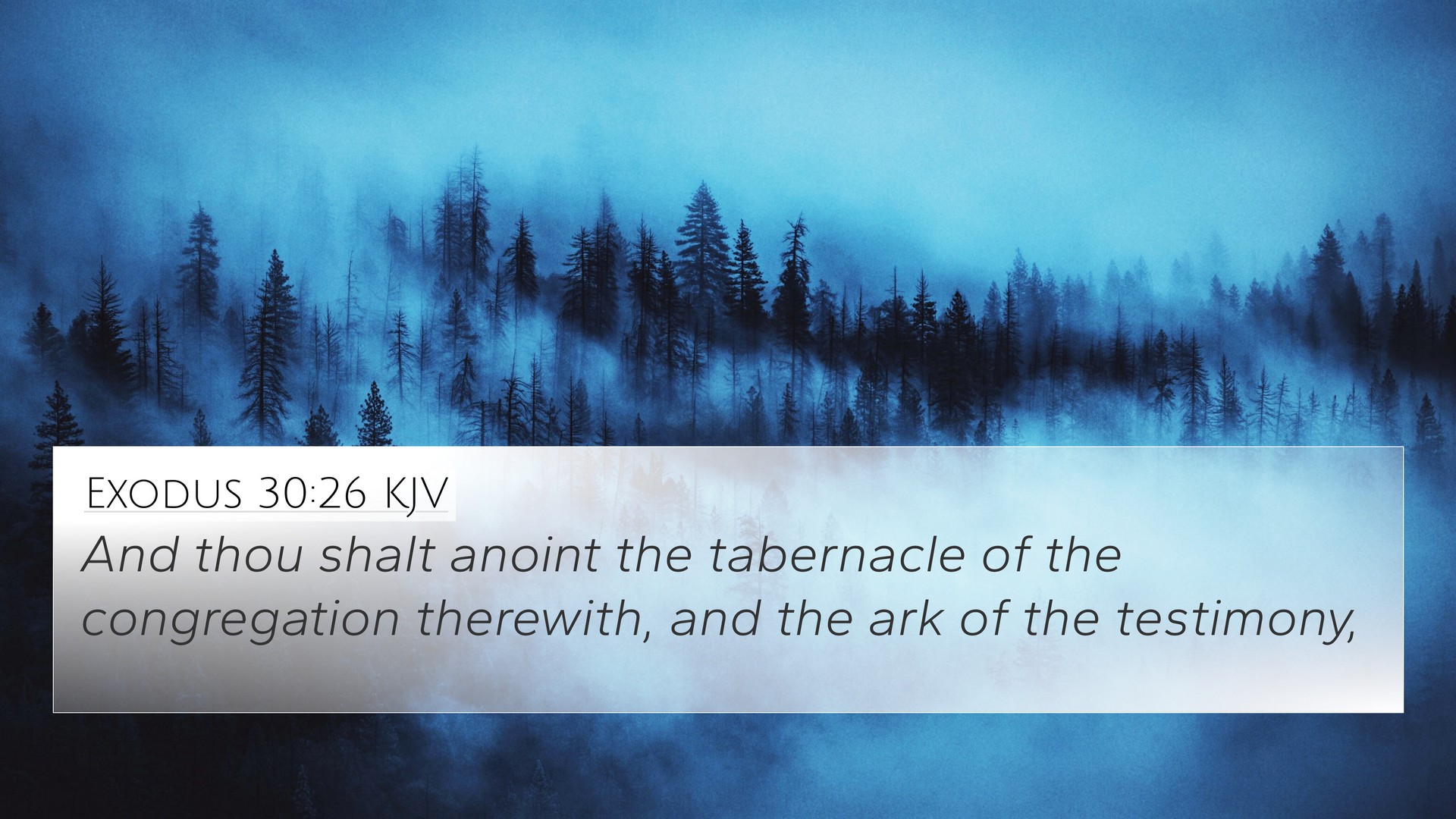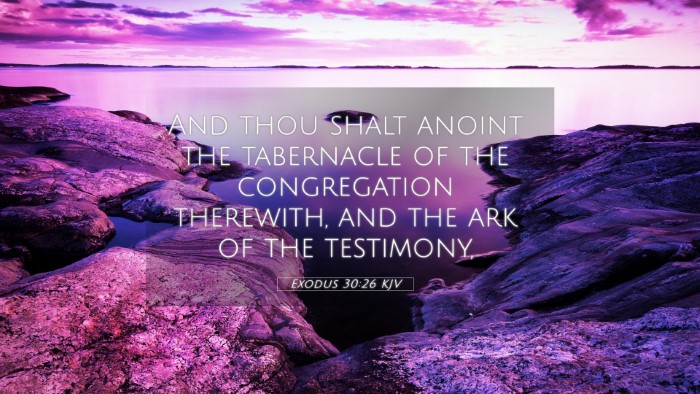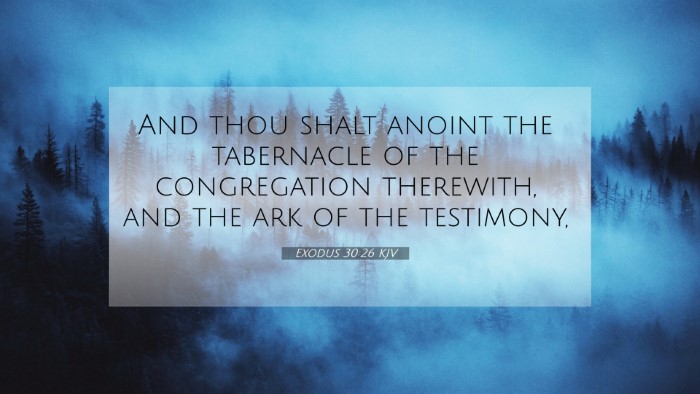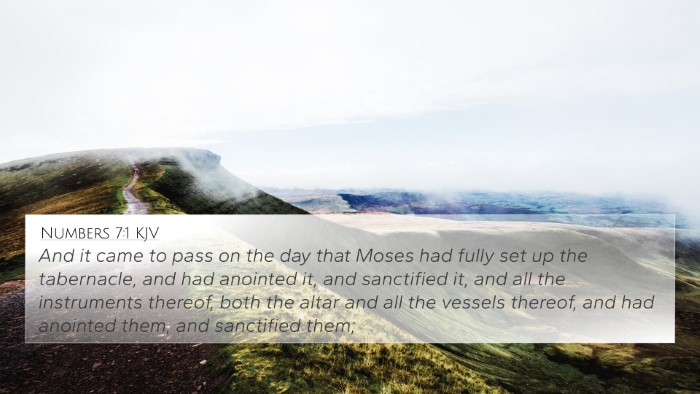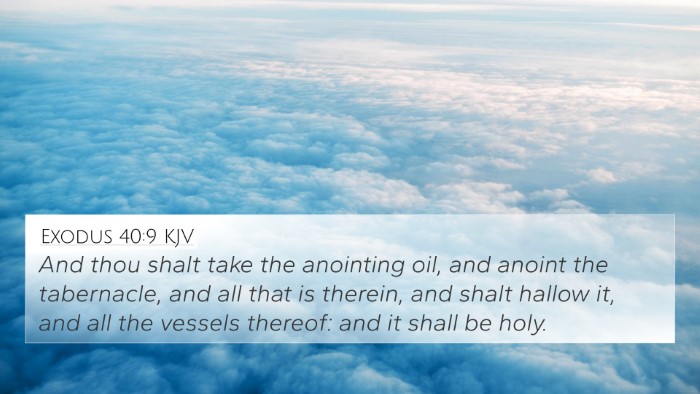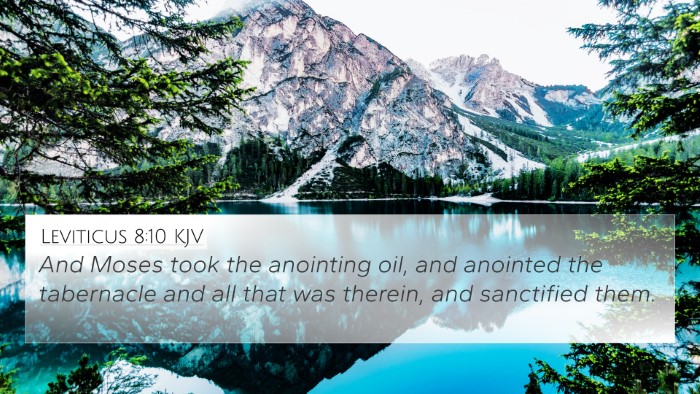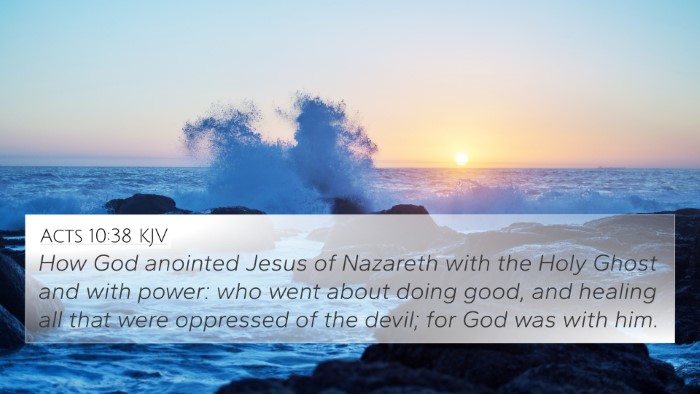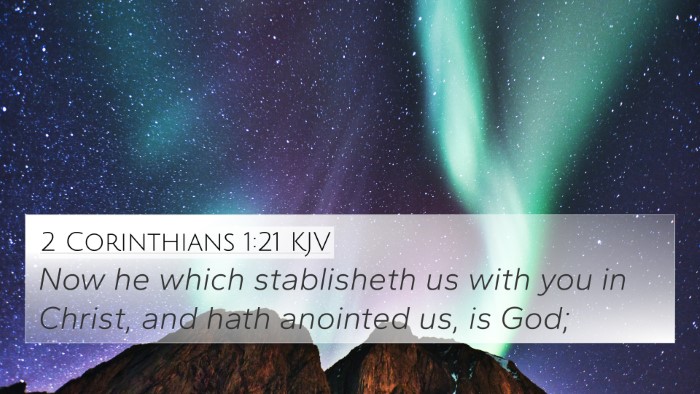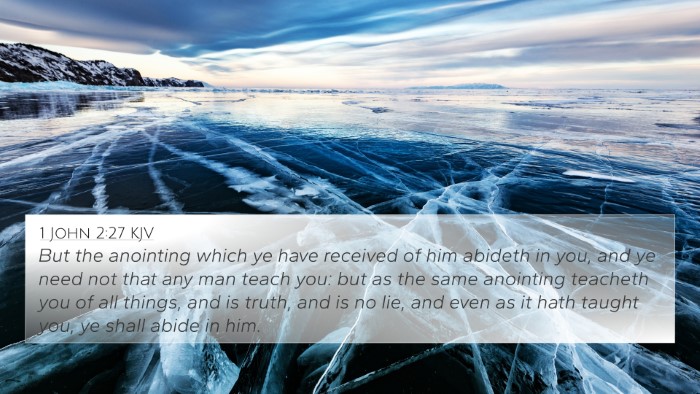Understanding Exodus 30:26
Bible Verse: Exodus 30:26 - "And thou shalt anoint the tabernacle of the congregation therewith, and the ark of the testimony,"
Summary of the Verse: In Exodus 30:26, God instructs Moses on the sacred task of anointing major components of the Tabernacle with holy oil. This action signifies the consecration of these objects, setting them apart for divine use and worship.
Commentary Insights
- Matthew Henry: Henry emphasizes the significance of the anointing oil as a symbol of the Holy Spirit. He explains that the act of anointing the tabernacle and the ark signifies God's presence and sanctifies these items for His worship. The oil is not merely a physical substance; it also represents God's grace and empowerment.
- Albert Barnes: Barnes discusses the practicality behind the command, elucidating that the Tabernacle served as the dwelling place of God among His people. He points out the necessity of such consecration to underscore the holiness required for items associated with divine worship, emphasizing the distinctions between sacred and secular.
- Adam Clarke: Clarke provides a detailed examination of the ingredients of the anointing oil and their symbolism. He notes that these elements reflect qualities that are essential for the true worship of God, such as purity and sacredness. Clarke suggests that the anointing is a vital step in the preparation for worship, highlighting both the seriousness and the grace involved in approaching God.
Thematic Connections
This verse is rich with themes relevant to understanding God’s desire for holiness and separation from the common. The anointing symbolizes the establishment of a relationship between God and His people through their worship and obedience.
Related Bible Cross-References
Here are some significant Bible verses that relate to Exodus 30:26, offering a deeper understanding through cross-referencing:
- Leviticus 8:10-12: Describes the anointing of Aaron and his sons, paralleling the consecration process in Exodus.
- 1 Samuel 10:1: The anointing of Saul as king signifies God's choice and appointment, reflecting the concept of anointing in leadership.
- Matthew 26:6-13: The alabaster jar of expensive perfume used to anoint Jesus highlights the theme of sacred anointing in the New Testament.
- Hebrews 9:1-5: References the items within the Tabernacle, illustrating the continuity of God's presence and worship from the Old Testament to the New.
- 2 Corinthians 1:21-22: Discusses the anointing of believers as a seal, connecting New Testament believers with the holy significance of anointing.
- Exodus 40:9-10: Instructions for consecrating the altar and the Tabernacle point to the ongoing need for holiness in worship.
- Isaiah 61:1: The anointing of the Spirit upon the Messiah shows the prophetic fulfillment of God's mission through anointed ministry.
- 1 John 2:20: Mentions that believers have an anointing from the Holy One, which ties back to the theme of spiritual empowerment.
- Psalms 133:2: Highlights the preciousness of the oil of anointing, underlining the communal aspect of holiness and unity in worship.
- Revelation 1:6: Indicates that believers are made kings and priests to God, echoing the theme of divine appointment and consecration.
Conclusion
Exodus 30:26 serves as a reminder of God's instructions for creating a sacred space among His people. By understanding the importance of the anointing in this context, one can appreciate the broader implications of holiness in worship and the divine presence within the community of believers.
Applying Insights Through Cross-Referencing
For those seeking to find connections between Bible verses and themes, tools for Bible cross-referencing such as a Bible concordance or Bible cross-reference guide can enhance one's study. By engaging with cross-referencing Bible study methods, believers can uncover deeper insights into how different scriptures relate to one another.
